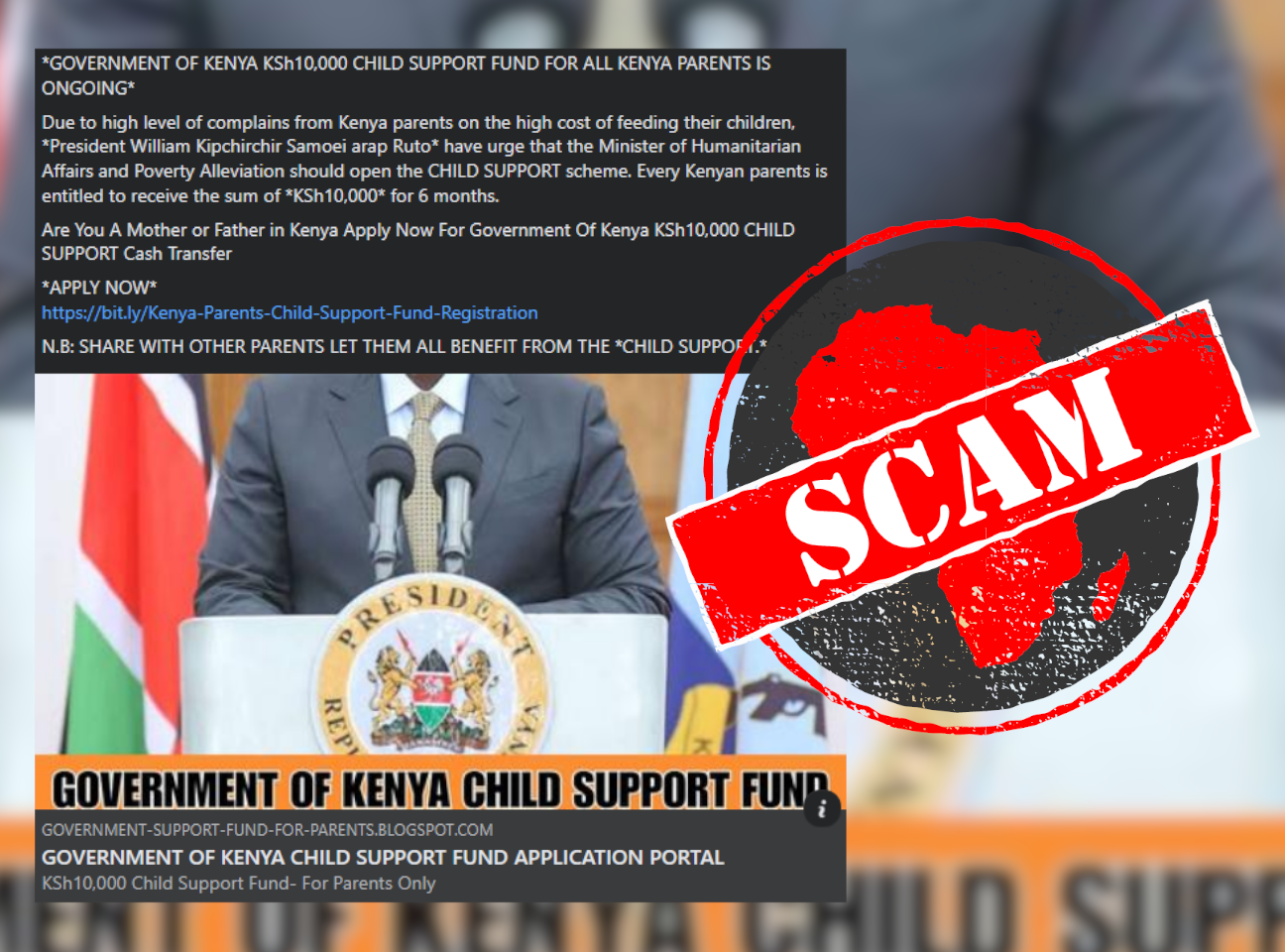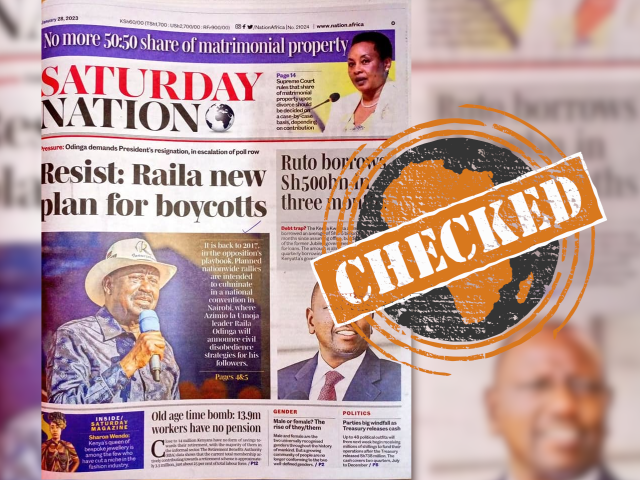IN SHORT: A viral Facebook post claims that the Kenyan government is giving every parent money to feed their children after numerous complaints about the high cost of food. But the claim is false and users should be wary of fraudsters.
“Due to high level of complains from Kenya parents on the high cost of feeding their children, President William Kipchirchir Samoei arap Ruto have urge that the Minister of Humanitarian Affairs and Poverty Alleviation should open the CHILD SUPPORT scheme,” reads a poorly written message that has gone viral on Facebook in Kenya.
“Every Kenyan parents is entitled to receive the sum of KSh10,000 for 6 months. Are You A Mother or Father in Kenya Apply Now For Government Of Kenya KSh10,000 CHILD SUPPORT Cash Transfer,” it adds.
The post includes a link to a website where Kenyan parents can supposedly apply. Other similar posts provide a WhatsApp number instead of linking to the website.
The offers have been posted here, here, here, here, here, here, here, here and here.
But is president William Ruto’s government giving every Kenyan parent KSh10,000 (about US$62) to feed their children? We checked.

Identifying a scam
The poor writing in the posts is the first sign that they are a scam. It would be highly unusual for a government ministry to publish a notice with random capitalisation, misspellings and odd punctuation.
The posts claim that Kenya’s president has urged “the Minister of Humanitarian Affairs and Poverty Alleviation” to open the support scheme. But there is no such ministry in Kenya. The Kenyan government official in charge of such a ministry would normally be a "cabinet secretary", not a "minister".
The closest Kenyan ministry would be the ministry of labour and social protection, with children's issues falling under the directorate of children's services in the same ministry. But no such ad has been published by the ministry on social media.
When we tried to open the link on our computer, the antivirus program warned us that it was a “malicious” link. We took the risk – not recommended – and opened it anyway.
We filled in random details on the application form, including name, mobile phone number, email address and country of origin. We were also asked whether or not we were parents. This is an indicator that the website may be trying to steal our personal information – a tactic known as phishing.
The form then asked us to share the link “with 5 groups or 15 friends on WhatsApp” as the only way to get to the “payment form”.
This is simply engagement bait. These are social media posts that ask people to interact by liking, commenting or sharing. This increases the reach of the post, but ultimately offers no reward.
Similar scam in South Africa
A similar message with a link to a dodgy website is also circulating on social media in South Africa.
It claims that the South African government will provide “all South African parents” with a child support grant of R1,100 (about US$59) for six months. Otherwise the wording is almost identical to the Kenyan claim.
But this claim is also false and users should be wary of fraudsters.
For more information on how to avoid online scams, particularly on Facebook, read our guide here.
Republish our content for free
For publishers: what to do if your post is rated false
A fact-checker has rated your Facebook or Instagram post as “false”, “altered”, “partly false” or “missing context”. This could have serious consequences. What do you do?
Click on our guide for the steps you should follow.
Publishers guideAfrica Check teams up with Facebook
Africa Check is a partner in Meta's third-party fact-checking programme to help stop the spread of false information on social media.
The content we rate as “false” will be downgraded on Facebook and Instagram. This means fewer people will see it.
You can also help identify false information on Facebook. This guide explains how.





Add new comment